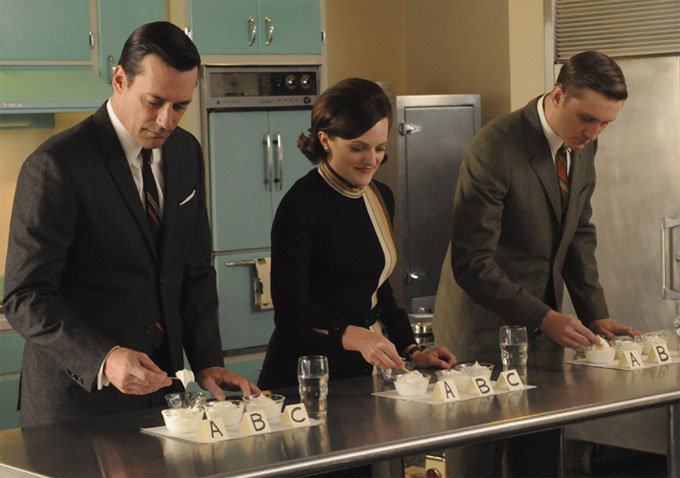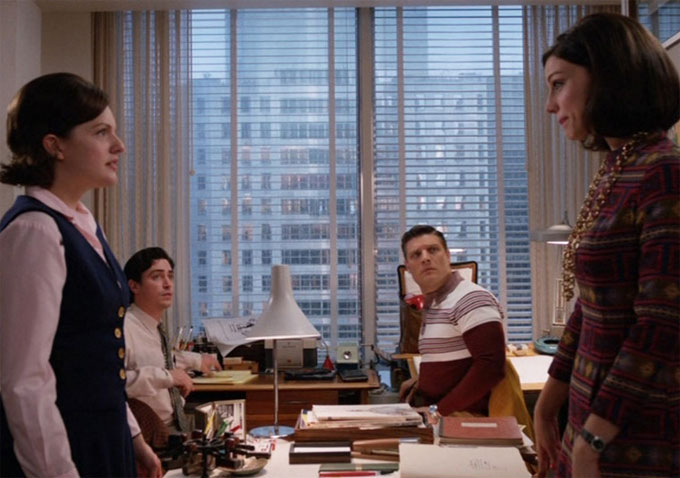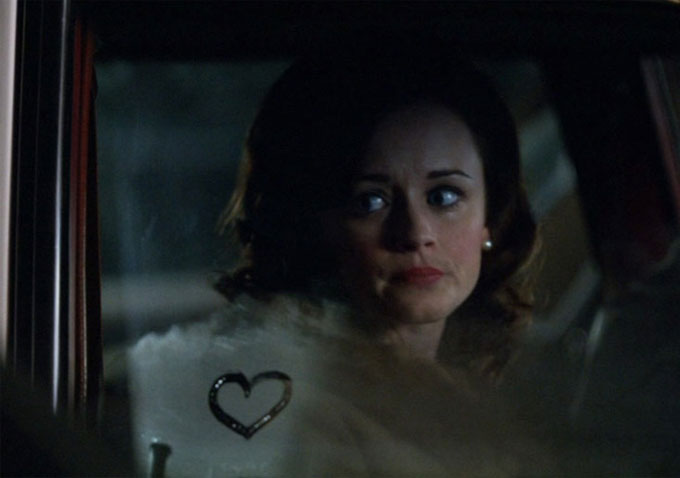By providing your information, you agree to our Terms of Use and our Privacy Policy. We use vendors that may also process your information to help provide our services. This site is protected by reCAPTCHA Enterprise and the Google Privacy Policy and Terms of Service apply.
Even Better Than the Real Thing: ‘Mad Men’ Dives Into the Cool Whip

 Series like “The Wire” are more easily remembered in season-long arcs rather than episodic increments. Stories and ideas stretch out and solidify as larger developments, unfolding over hours. But “Mad Men,” for all its grand ambition, maintains a lot of respect for the form of the episode, looping together different goings-on loosely around a theme each time. The deliberate imprecision of each installment’s patterns makes the show more interesting; rarely does “Mad Men” tie everything together too neatly, which is why it can have an episode like last night’s “Lady Lazarus,” written by Matthew Weiner and directed by Phil Abraham and essentially centered around a Cool Whip motif.
Series like “The Wire” are more easily remembered in season-long arcs rather than episodic increments. Stories and ideas stretch out and solidify as larger developments, unfolding over hours. But “Mad Men,” for all its grand ambition, maintains a lot of respect for the form of the episode, looping together different goings-on loosely around a theme each time. The deliberate imprecision of each installment’s patterns makes the show more interesting; rarely does “Mad Men” tie everything together too neatly, which is why it can have an episode like last night’s “Lady Lazarus,” written by Matthew Weiner and directed by Phil Abraham and essentially centered around a Cool Whip motif.
Cool Whip’s a prospective Sterling Cooper Draper Pryce client that Ken is trying to sell using Don and Megan’s adorable scripted bickering, but it’s also a product that mimics, while not being at all similar to, genuine whipped cream. It’s not the real thing, but it might be okay, as far as non-dairy dessert toppings go, if you give it a try — just taste it, as Don’s tagline goes. And that idea of going with what’s good enough becomes a melancholy parallel to Megan’s departure from the company and from the world of advertising, a decision she makes with difficulty but seemingly no regret.
 She tried, and turned out to be great at it, but it wasn’t what she wanted. She’s not like Peggy or Don, who for better or worse always click back together, drawn to the world of the lure, of the sale. She chooses her art, chooses acting over the office, and as outsiders who clawed their way into the business and knew it was always what they were meant for, Peggy and Don are both a little wounded by her rejection.
She tried, and turned out to be great at it, but it wasn’t what she wanted. She’s not like Peggy or Don, who for better or worse always click back together, drawn to the world of the lure, of the sale. She chooses her art, chooses acting over the office, and as outsiders who clawed their way into the business and knew it was always what they were meant for, Peggy and Don are both a little wounded by her rejection.
Like the music that, to Don’s consternation, has become so important to everyone, Megan’s decision to pursue her dream is a luxurious concept he tries to accept but can’t really reconcile. (“I was raised in the ’30s,” he tells Roger. “My dream was indoor plumbing.”) He’s felt his share of dissatisfaction, but his problems were never professional ones — his art has always been one of commerce. And the fear that Megan and the world are going places he can’t follow is illustrated in the episode’s great image of the elevator doors opening to reveal an empty shaft, just a long drop into the darkness instead of a car waiting to bring him down where she’s gone. “I don’t want her to end up like Betty or her mother,” Don says of his second wife, and he’s trying to let her find her own way, but he’s also furious and hurt and takes it out on Peggy (who knows this all too well) when they find themselves reenact what was originally going supposed to be a rehearsed exchange for the clients between Don and Megan. “It’ll be just as good” — or at least that’s what we all tell ourselves.
Pete, who’s been getting antsy in his suburban married life with Trudy, starts up an affair with a doomy choice of partner. Beth (Alexis Bledel — Rory Gilmore herself) is no “side dish” in the city, as Pete’s insurance salesman commuter pal Howard puts it. She’s Howard’s wife, she lives in the same town and she appears to be undergoing some serious depression (“I don’t think he’d even care if I was alive or dead,” she says of her husband).
 Pete’s smitten — she’s like Trudy but different, darker, more complicated and more mysterious (and certainly more self-serious) and she’s giving him some maddeningly mixed signals, sleeping with him impulsively and then refusing to see him again, standing him up at the hotel he’s booked but drawing a heart for him on her car window. If Pete’s looking for a way to shatter the life he’s established with Trudy, Beth seems the tool with which to do it — the character who most resonates with the Sylvia Plath poem for which the episode was named.
Pete’s smitten — she’s like Trudy but different, darker, more complicated and more mysterious (and certainly more self-serious) and she’s giving him some maddeningly mixed signals, sleeping with him impulsively and then refusing to see him again, standing him up at the hotel he’s booked but drawing a heart for him on her car window. If Pete’s looking for a way to shatter the life he’s established with Trudy, Beth seems the tool with which to do it — the character who most resonates with the Sylvia Plath poem for which the episode was named.
“Lady Lazarus” even has a substitute topping of a soundtrack — the Beatles themselves and the soundalike record that the Chevalier Blanc execs approve of, a rendition of “September in the Rain” that Don thinks sounds fine even though Michael claims it’s “stabbing me in the heart.” The problem, for Don, is not that it’s not close enough but that he can’t tell the difference and doesn’t care. When he puts on his gift from Megan at the episode’s close, the sounds of the real Fab Four’s “Tomorrow Never Knows” filter in (reportedly the first time a master recording by the Beatles has been licensed for a TV show, and it didn’t come cheap), and we see Megan in her acting class and Peggy getting high at the office — and then the music stops. Don doesn’t want to listen.
By providing your information, you agree to our Terms of Use and our Privacy Policy. We use vendors that may also process your information to help provide our services. This site is protected by reCAPTCHA Enterprise and the Google Privacy Policy and Terms of Service apply.

















